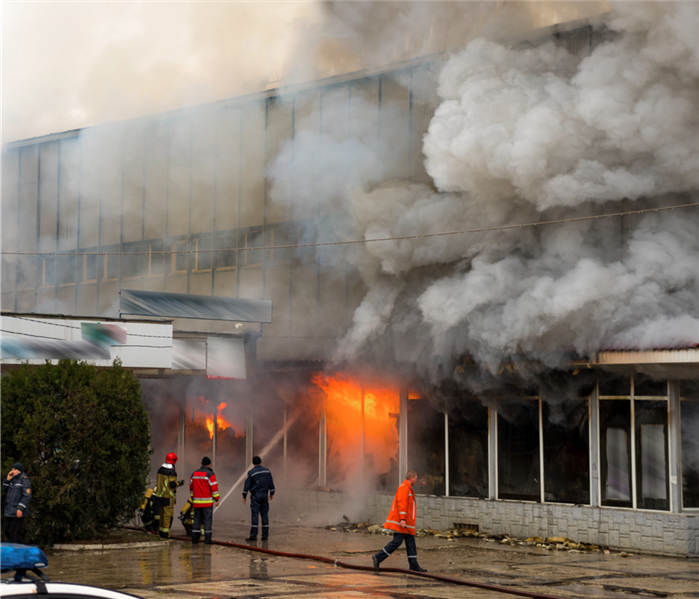How Water Damage and Fire Damage Can Be Related
11/11/2020 (Permalink)
Here Are A Few Ways Water Damage Can Occur After A Fire
Believe it or not having to conduct a water cleanup at your Rest Haven, GA, place of business is something that many local fire restoration professionals anticipate any time they're called to a job. Much like needing to perform a smoke cleanup, a restoration evolving water damage is a normal part of a fire cleanup.
1. Fire Suppression
The suppression efforts used to put out the fire in the first place may also lead to water damage. For example, the use of a fire hose can cause flooding as a fire hose can pump out up to 500 gallons per minute. The fire may be put out, but water can be left behind. Similarly, suppressant released by an overhead sprinkler system may contain less water, but if allowed to sit it too can lead to water damage
2. Weather
After a fire, wet weather such as rain, hail or snow can cause problems which result in the need for a water cleanup. This typically occurs after the fire has weakened the exterior structure leaving holes that the weather can get through. The damp space left after a storm can turn into water damage if left unattended. This is why you may see your restoration service board or tarp over the building until repairs can be made.
3. Plumbing
Your plumbing can be affected by a fire as well. The heat can put stress on joints or thinner areas of metal, which can then weaken the pipes allowing them to possibly burst after a fire. This can result in flooding in these areas, and possible water damage. Fortunately, your local restoration service should be able to handle any clean up the repairs of this type of water damage.
Needing a water cleanup after a fire at your place of business is actually fairly expected. This is because things like a fire suppression efforts, wet weather, and problems with plumbing can all contribute to possible flooding. Fortunately, many local fire restoration professionals expect possible water damage and will know how to best restore the property.






 24/7 Emergency Service
24/7 Emergency Service
